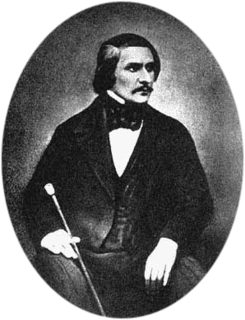A Quote by Honore de Balzac
There are houses in certain provincial towns whose aspect inspires melancholy, akin to that called forth by sombre cloisters, dreary moorlands, or the desolation of ruins. Within these houses there is, perhaps, the silence of the cloister, the barrenness of moors, the skeleton of ruins; life and movement are so stagnant there that a stranger might think them uninhabited, were it not that he encounters suddenly the pale, cold glance of a motionless person, whose half-monastic face peers beyond the window-casing at the sound of an unaccustomed step.
Related Quotes
There comes a moment during which almost every girl or boy falls into melancholy; they are tormented by a vague inquietude which rests on everything and finds nothing to calm it. They seek solitude; they weep; the silence to be found in cloister attracts them: the image of peace that seems to reign in religious houses seduces them. They mistake the first manifestations of a developing sexual nature for the voice of God calling them to Himself; and it is precisely when nature is inciting them that they embrace a fashion of life contrary to nature's wish.
I am very fond of the modest manner of life of those solitary owners of remote villages, who in Little Russia are commonly called "old-fashioned," who are like tumbledown picturesque little houses, delightful in their simplicity and complete unlikeness to the new smooth buildings whose walls have not yet been discolored by the rain, whose roofs are not yet covered with green lichen, and whose porch does not display its bricks through the peeling stucco.
If in a city we had six vacant lots available to the youngsters of a certain neighborhood for playing ball, it might be "development" to build houses on the first, and the second, and the third, and the fourth, and even the fifth, but when we build houses on the last one, we forget what houses are for.
The oyster was an animal worthy of New Orleans, as mysterious and private and beautiful as the city itself. If one could accept that oysters build their houses out of their lives, one could imagine the same of New Orleans, whose houses were similarly and resolutely shuttered against an outside world that could never be trusted to show proper sensitivity toward the oozing delicacies within.
It is a dreadful thing to see the dead city. Next to the port I found children, women, the old, waiting for a way to leave. I entered the houses, there were houses where the coffee and pita bread were left on the table, and I could not avoid [thinking] that this, indeed, had been the picture in many Jewish towns [i.e., in Europe, during World War II].
At least half of every city is wrong. From latitude 30 degrees to latitude 60, say, you've got to have the long axis of the house facing the sun. If the land is cut up into squares, that makes half of all houses wrong if they face the road. Even houses way in the country, and way off the road, face the bloody road. And from there, you just go wronger all the way.






































